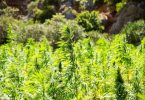https://www.botanical-education.org/banning-kratom-not-answer/
Ryan F. Estevez, MD, PhD, MPH is the Founder of the Tampa Bay Neurobehavior Insitute and the Medical Director at Turning Point of Tampa, Inc. He holds Board Certifications in General, Forensic and Geriatric Psychiatry, Addiction Medicine and Psychosomatic Medicine. Dr. Estevez has no financial ties to Kratom, nor would he benefit financially from Kratom remaining legal or being banned.
Kratom is Not a “Dangerous” or “Addictive Drug”
I have been troubled by an increase in news reports and misinformation that has been disseminated about the “dangerous” and “addictive drug” kratom. Even worse is the subsequent careless and knee-jerk response by many legislators and policy makers to ban kratom. Unbeknownst to most, kratom comes from a tropical tree, indigenous to Southeast Asia, and has been used for more than 200 years by local inhabitants to treat a variety of maladies including diarrhea, depression, anxiety, lethargy, cough, chronic pain, and opioid withdrawal. It has only been over the past several years however, that kratom has come to the attention of the general public and overzealous government regulators, due to sensationalized reports, media speculation, faulty assumptions, and unscientific conclusions.
Uninformed Media and Public
Grieving parents, well intentioned policy makers, and opportunist politicians often seize on opportunities to assign blame and then offer a “quick fix” to infinitely complicated tragedies that result from public health problems. The proposal of an absolute ban of kratom perfectly illustrates what can happen when hype trumps science, as this plant has been benefiting millions of people for decades of time.
I believe much of the negative publicity surrounding kratom to be the result of being incorrectly lumped in with synthetically derived mind-altering substances such as “spice” and bath-salts, substances that deserve their reputations for being dangerous and harmful. Unlike kratom, these new and lab created substances have not been available and used by humans for centuries, have no medicinal value, have clear health risks, and provide no future promise for future research and health benefits.
Clinical Experience with Kratom
As psychiatrist and psychopharmacologist who has worked for years in emergency rooms, community health centers, and prisons, I am well versed in both “good” drugs that help people on a daily basis, and “bad” drugs that are epidemically abused and create a tremendous burden on society. As the acting medical director for a large residential and intensive outpatient drug and alcohol rehabilitation center, I am also intimately familiar with drugs of abuse and how addiction ruins lives. Kratom is not one of these drugs (I have yet to admit anyone for kratom-addiction) and efforts to ban it are misguided and wasteful. In fact, there is emerging evidence that kratom can be helpful in alleviating symptoms of opioid withdrawal.
Our collective response to any potentially beneficial plant or substance should be to learn more about it and empower government and private institutions to research and study, not ban it! With mental health and substance abuse services so limited, underfunded, and ubiquitously unavailable (particularly for the poor), I am all for anything that might help people break away from harmful addictions.
We should not be hoodwinked into mistaking a ban for actual beneficial policy, or conned into believing eliminating kratom would alleviate or even address drug-related issues so impactful to millions of American families.
– See more at: https://www.botanical-education.org/banning-kratom-not-answer/#sthash.4OUJ1X2i.dpuf


